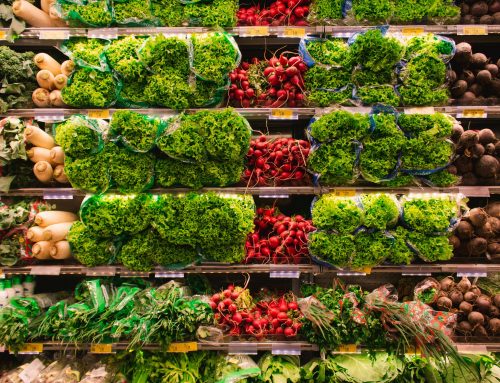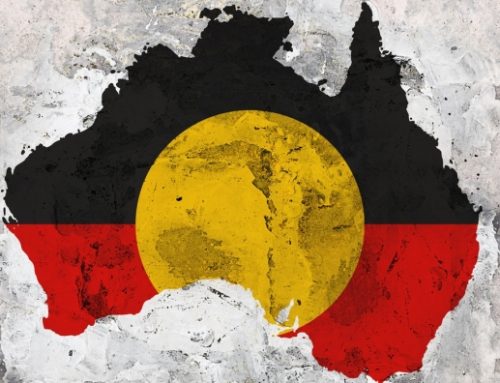Media release 26 April 2015
The Western Australian Government’s proposed closure of remote Aboriginal communities
The Australian Food Sovereignty Alliance (AFSA), supported by the Public Health Association of Australia (PHAA), express our strongest opposition to the forced removal of Aboriginal peoples from their communities, as proposed by the Western Australian government.
Such a removal would infringe fundamental human rights, and further diminish the food sovereignty of Aboriginal and Torres Strait Islander peoples.
Government in breach of obligations
ABS data released this week indicates that more than one in five Aboriginal and Torres Strait Islander people live in a household which had run out of food and was unable to buy more, a rate of food insecurity six times higher than the rest of the Australian population. AFSA supports the combined call by the Public Health Association of Australia, Red Cross and Dietitians Association of Australia for increased resourcing of nutrition and food supply strategies to respond to this crisis.
This appalling rate of food insecurity shows that our Federal and state governments are in breach of their obligations to ensure that all Australians, and especially the most disadvantaged, enjoy the fundamental human right to adequate and culturally appropriate food, guaranteed by Article 10 of the United Nations Covenant on Economic, Social and Cultural Rights. Australia is a signatory to that Covenant and has ratified it. The UN Declaration on the Rights of Indigenous Peoples outlines a range of rights of indigenous peoples which would be contravened by the forced removal of Aboriginal peoples from their communities and lands.
We believe it is a fundamental and ongoing act of reconciliation, respect and celebration of Aboriginal and Torres Strait Islander peoples and their culture that as a nation we support their right to remain on their traditional lands. This is where they are able to maintain the crucial relationships to the land, animals, plants, and ancestral and spiritual beings.
We acknowledge also that language, culture, spirituality, health and wellbeing and nutritional and medicinal knowledge are inextricably linked to peoples’ traditional lands and are strengthened, deepened and replenished by being on their traditional lands.
In Western Australia, dispossession continues
The history of colonisation of Australia demonstrates that when Aboriginal and Torres Strait Islander peoples are removed from their traditional lands there is a loss of skills and knowledge of the nutritional, medicinal and spiritual properties of traditional foods and the language to describe them. These processes of removal constitute a form of cultural genocide. It is unacceptable for this to happen yet again.
In the historical frame of the last 230 years, the current proposal by the WA government to remove basic services and infrastructure support from some remote Aboriginal communities is, whatever the rhetorical and ‘pragmatic’ justifications, yet another dispossession of both people, and the country to which they belong and owe the duty of custodianship.
With rapidly declining soil health and water availability in Australia, the living bank of sustainable land management knowledge held by Aboriginal people who have been able to maintain their language, culture and connection to country is an irreplaceable resource, not just to the people themselves, but to the whole nation. The impacts on Aboriginal and Torres Strait Islander peoples’ lives that have occurred through colonisation mean that remaining knowledge and skills are vulnerable to loss. Closing remote Aboriginal communities would all but guarantee that loss.
Should the Western Australian government proceed with the closure of remote communities it would set a disturbing precedent for the denial by governments of Aboriginal and Torres Strait Islanders rights across Australia to remain on their traditional lands. Such action would also have broader implications for infrastructure in rural and remote areas of Australia particularly regarding critical issues such as road maintenance and health services which are shared by all.
A better way forward
What is required of our governments are responses to Aboriginal and Torres Strait Islander peoples human rights which are driven not by governments but by Aboriginal and Torres Strait Islander people themselves.
AFSA calls on the Western Australian government to confirm that no remote Aboriginal communities will be stripped of essential service and infrastructure supports.
The reoccurring failures of governments to adequately and consistently respect and uphold Aboriginal and Torres Strait Islander peoples’ rights to food sovereignty and food security is reflected in the lack of national, coordinated policy, funding and practice regarding food sovereignty and food security.
We call on governments at all levels to come together as a matter of urgency to develop in collaboration with Aboriginal and Torres Strait Islander organisations and communities, health and community sector peak bodies and other key stakeholders, a policy framework, funding commitments and national action plan for food sovereignty and food security.
………..
About the Australian Food Sovereignty Alliance and food sovereignty
The Australian Food Sovereignty Alliance (AFSA) is working towards a fair, diverse and democratic food system for the benefit of all Australians. We are a civic organisation of Australian producers, communities, organisations and individuals committed to upholding the rights of peoples to food sovereignty.
Food sovereignty asserts the right of peoples to nourishing and culturally appropriate food produced and distributed in ecologically sound and ethical ways and their right to collectively determine their own food and agriculture systems.
The degree to which peoples experience food sovereignty has a direct bearing on their food security. Food security exists when all people, at all times, have physical, social and economic access to sufficient, safe and nutritious food which meets their dietary needs and food preferences for an active and healthy life. The greater peoples’ food sovereignty, the greater the level of control they have over their food choices and the sources of their food.
Contact:
Clare Richards, National Committee member for North Australia, Australian Food Sovereignty Alliance:
- Mobile: 0409 944 136
- Email: clare@clareskitchen.com
Michael Moore, CEO, Public Health Association of Australia:
- Mobile: 0417 249 731





